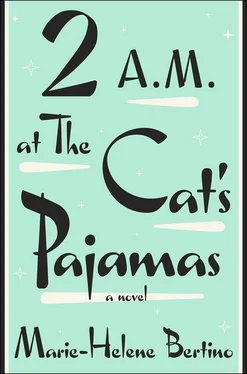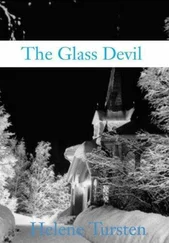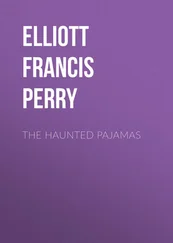Lorca warns him over the phone, “They’re going to break your hands, Gus, and you’ll never play again.”
In love, Gus is a mess. “They can take my hands,” he snorts. “I don’t need them.”
Alessandra sews a warm lining into his old coat, salves his arms with cotton balls soaked in crèmes from her sister’s salon. She cooks big meals. Gus sends Lorca a picture: him grinning loonily at one end of a table, and her at the other, holding a noodle salad. Between them in dozens of chairs are her brothers and sisters, variations on Alessandra. After dinner, he ties up and they sit on her roof. They put the best views of a city in its worst neighborhoods. She holds him while he pukes.
He says she sings like Patsy Cline. She calls him lupo grigio , Gray Wolf.
“When you’re not around,” she says, “my days are gray.”
Leland and his buddies find Gus at The C Note, looking for Charlie. It is late, and Gus isn’t feeling any pain. He won’t tell them where Charlie is, so they beat him up and take his coat.
They find Mongoose in a corner store. He doesn’t run, or take it for his friend. The next morning, a janitor stumbles over Charlie on a train platform, so brained in Gus has to identify him by his sleeve of tattoos at the morgue. Then he goes on a bender, a weeklong disaster. Charlie’s debt falls to him, so one night he lets himself into Alessandra’s house and creeps into one of the empty upstairs bedrooms. One of the sisters catches him going through her purse and calls for Alessandra. Alessandra isn’t mad. She gives him what she has. There’s no fight to be had, but Gus fights, anyway. He tells her she is only good for one thing. They scream at each other on the front staircase: Alessandra in tears and Gus so high he won’t remember the names he keeps spitting at her until they drag him away.
He stumbles to The C Note and passes out behind the bar. When he wakes up a penny postcard has arrived with news from Lorca.
Francis Lorca is dead. Jack Lorca has inherited The Cat’s Pajamas. He is calling everyone home. Bring your guitars, your Alessandras. Come home.
To Gus, clothes papery with dirt, Lorca is offering a place to get quiet. It is as if his future is revealed to him like the archangel coming down to Mary, only this is a crappy postcard, a soft pretzel with arms and legs, dancing on a word spelled out in cartoon letters.
Gus and Sonny move back and join the Cubanistas. Sam Mongoose moves back too and opens his own club in Center City. Lorca ignores his phone calls until he stops calling. Gus goes clean and quiet, and never ties up again. The last time Gus sees Alessandra is through the elbows and arms of her brothers and sisters who force themselves in between them.
That’s a drummer’s love story. If you want a prettier one, you’ll be waiting forever. If you could separate your body into four distinct rhythms, you’d be cracked too.
It is dark, dark seven P.M. on Christmas Eve Eve.
The city gathers its black-skirted taxis around the ankles of Rittenhouse Square. A vendor rolls his cart into the park. Pinwheels hem and sigh in flowerpots stuffed with foam. Every audience in every theater on Broad Street leans forward into the hyphen of silence between the overture and Act One. A couple necks in the backseat of a Honda parked at Thirteenth and Spruce.
Ted Stempel leaves for his shift at the store. His battered pit bull puppy, Malcolm, gazes at him. “On second thought,” he says to his wife, “I’ll take him with me.”
Once in a while a gust of evergreen settles over the man selling Christmas trees on Walnut. It really is nice, he thinks, that smell. In Olde City a girl follows her breath down the street, drifting away from her friends. “Look.” She claps her mittened hands. “Look!”
Madeleine is sleeping.
On her building’s rooftop, Mrs. Santiago unclips a shirt and yanks the laundry line toward her, unclips a bra then yanks, and so forth, until the line has been yanked empty, its contents folded into a wicker basket. She watches the Market-Frankford El slice across the horizon. She’s never been on a plane. She wants to take a trip, but she has to fold the laundry. Find the dog. Freeze the gravy. Take care of the child who lately has seemed troubled and distracted.
Mrs. Santiago once cooked for three days in preparation for Christmas, then spent the entire meal running back to the kitchen for a cheese grater, a certain pepper, a record someone mentioned. Borne back ceaselessly into the kitchen.
A faraway ambulance screams through the city.
Mrs. Santiago prays: Little Flower, show your power at this hour .
In Georgina McGlynn’s kitchen, Sarina uses wooden tongs to refresh a salad. She was the first guest to arrive and now suffers through the aneurysm of the doorbell, heralding another guest, Bella and Claudia and Michael, so far. So far, things are not going well. Her presence has caused glances of confusion (Bella), raised eyebrows (Michael), and one pointed “Who are you, though?” (Claudia). This has made Sarina nervous, resulting in several earnest exclamations regarding the salad. Breathtaking, she called it. More confused glances caused her to call the baked potatoes badass.
The necking couple at Thirteenth and Spruce has fogged up most of the Honda’s windows. The man presses his lips against the woman’s neck, her earlobe. Her eyes are closed, but she leans forward as if straining to see something through the misted window, Ben Allen perhaps, who is several yards away coaxing the last drag from his cigarette. Ben had been about to leap the stairs to Georgie’s house when he caught sight of the pawing couple. He watches until nostalgia forms in his lower gut — he once made slow work of someone’s neck, but whose? Certainly not Annie’s — but not long enough to be a cad. He takes Georgie’s steps in two leaps, as usual the last to arrive. His sanctified role in this group is showing up unforgivably late but armed with a story of what kept him that is so compelling he is at once forgiven. He shakes himself out of his coat in Georgie’s entryway. “You will not believe what is happening on your very street, Georgie.” He waits until she pauses in her work lighting candles and Bella and Claudia turn, to announce, “A couple is making out in a car.”
“Where?” Bella runs to the window. “I want to see.”
“There,” he points.
“Gross.” Georgie waves out a match.
“Not gross, Georgie. Inspiring.” He surveys the room — the smell of cinnamon, the sputtering candles, the friends he’s had since forever — through the eyes of strangers making out in a Honda. “Doesn’t it make you happy to be in the world?”
“Doesn’t what make you happy to be in the world?” Sarina Greene enters the room holding a salad. Ben’s coat gets stuck halfway off. It pins him, turns him around. She watches him flail. Finally he wrenches free. “That coat tried to kill me,” he says. “You’re a witness.”
She giggles.
Bella introduces Ben to her new girlfriend, Claudia, who works with crack-addicted war veterans. Claudia tells Ben about her recent obsession with Hitchcock. People with service jobs create a pang of guilt in Ben. When does she have time to watch movies?
“Where is Annie?” Georgie says.
Ben delivers the line he rehearsed. “Home sick, she sends this wine.” He produces a bottle of red that Georgie and Sarina inspect. “It’s from a town where she spent summers. I’d tell you, but she says I pronounce it wrong.”
“How nice.” Georgie hands the bottle to Sarina, who it seems has become Assistant to the Dinner. She disappears into the kitchen.
Sarina attended high school with Ben, Georgie, Bella, and Michael but wasn’t what they would call “core.” She was a misfit in their pasteurized, suburban school. A bright spot, dressed in black. Earlier in the afternoon, when Ben had made the customary do-you-need-anything phone call, Georgie told him Sarina had been invited because of an intersection of location, timing, and pie. Georgie said they had engaged in a dangerous fraction of conversation, marked by perceived insult and overaccommodation: Would you like to come, sadly no, not that I don’t want to, well then you must, well then I absolutely will!
Читать дальше












